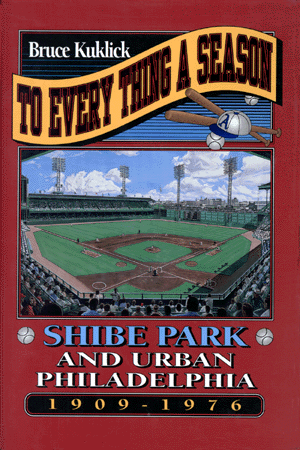
A retirement dinner party for an Ivy League professor follows certain conventions. It begins with the cocktail hour where guests renew old and make new acquaintances while sipping wine and nibbling appetizers. Then follows the meal where table assignments deepen opportunities for enjoyable conversation and provide an appropriate way to dine. Finally come the testimonials mixed with roasts from former students, family members, colleagues and peers, followed by remarks from the professor for whom everyone has gathered.
The dinner party in Philadelphia last Saturday night for Bruce Kuklick , the outgoing Nichols Professor of American History at the University of Pennsylvania, which my wife and I were privileged to attend (the meal really was terrific) followed this script. The people playing the roles were not generic, especially considering the skills of the hostess, Bruce’s spouse, Tizzy. Each person had a particular history with Bruce who had been to them either individually or severally a teacher, author, department member, fellow administrator, father, husband, or friend. Because of the particularity of the person being honored, the evening would not have been as meaningful for any generic collection of academics, family, or friends.
Even so, many of the testimonials would have caused those unacquainted with Bruce to take notice. For instance, when one of Bruce’s colleagues from Penn, by no means a slouch of in the history of philosophy, said that Bruce’s books, The Rise of American Philosophy and Churchmen and Philosophers, were two of the most important contributions to American intellectual history since Perry Miller, those unfamiliar with the field would have made a mental note while those who know Bruce’s contribution nodded in agreement, glad to hear their own assessment confirmed. Or, when another prominent intellectual historian from a rival institution spoke highly of Bruce’s range of subjects – from Jonathan Edwards and Josiah Royce to Henry Kissinger and Richie Allen – and his ability to explore these figures with remarkable sensitivity and acumen, those listening were reminded of the diversity of Bruce’s academic interests and success.
As fitting and flattering as these intellectual appraisals were, they were not as moving as the testimonials from siblings and children. Here the range of emotions ran from humor to genuine affection – the brothers who befuddled teachers for not living up to expectations set by their older sibling’s academic accomplishments in elementary and high school, and children who spoke of a father’s duty while coaching Little League teams for which they played, or carrying a copy of Trollope while providing an escort service to a performance of Smerfs on Ice.
Yet, these speeches finished in second place to Bruce’s own remarks where he demonstrated what has been a characteristic of the man throughout his career and responsibilities as husband and father. Those who know Bruce also know that he is not preoccupied with his standing in the profession. As he admitted, the plaudits of the academy are transitory. What mattered more to him than his Ph.D. was his Da.D. As sentimental as that might sound for those who have not had the privilege of knowing Bruce, the statement testified to the loyalty he has shown in the various relationships and memberships of his life. As accomplished as Bruce Kuklick is, you know that he will be there for you. The reason is that Bruce sees beyond the academy and values ordinary life.
In other words, Bruce Kuklick embodies the truth that what endures, is not the endowed university chair or the fame (however fleeting) of the highly acclaimed scholarly monograph. It is instead the variety of memberships and the local attachments in which regular people – including intellectuals – live, move, and have their being.
The American academy, as writers from Wendell Berry to Patrick Deneen have observed, is not a respecter of local culture. It uproots students from their homes, and for those who work in the university, academic life invariably turns professors into cosmopolites. But this deracination is not inevitable. A native of Philadelphia and a graduate of the University of Pennsylvania (both B.A. and Ph.D. before a brief stint at Yale as an assistant professor), Bruce has lived and worked in his home town for most of his career. Philadelphia is his world, a fact for which he is neither proud nor ashamed. It just is.
Actually, Bruce did succumb to a measure of boosterism last fall when the Phillies, the team of his childhood, won the World Series for only the second time in a storied record of defeat. Bruce was there with his sons on both nights of that bizarre, rain-delayed, fifth and final game. In his comments at the dinner, one son said that the Phillies’ 4-3 victory over the Rays “was the happiest day of his life.” Many suspected that the son was also speaking for the father, and that the reason for the joy had as much to do with the score as with the company.




2 comments
Jason Peters
An elegant reminder, DG, that living up to industry standards is a fine thing so long as you also live up to the higher and more difficult standards as well. Good to see you on the porch.
Comments are closed.